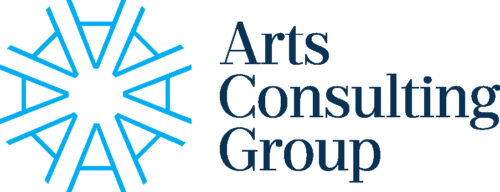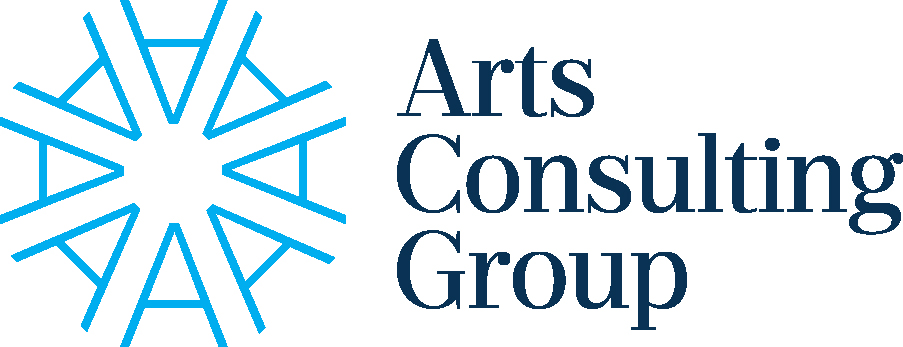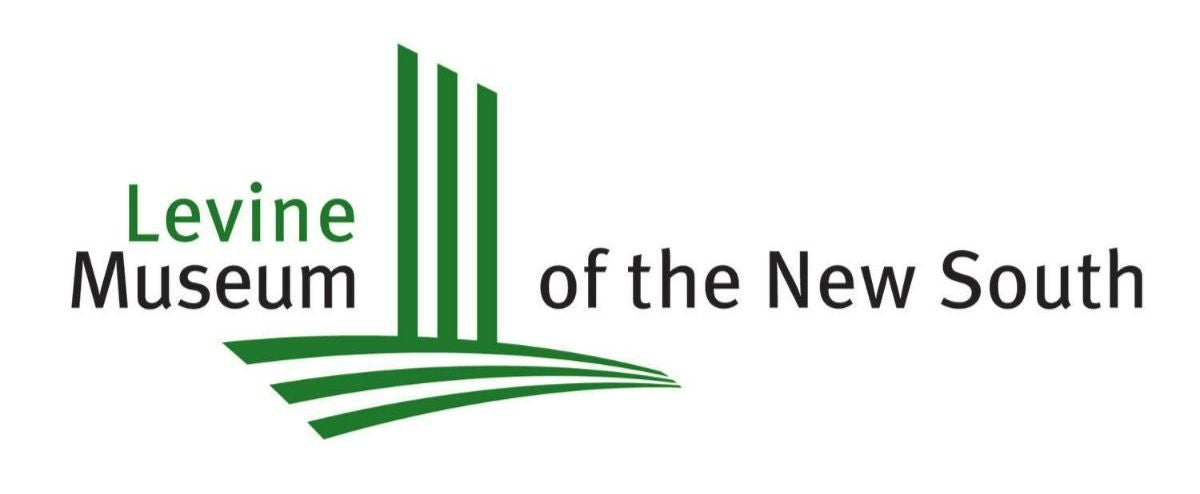Organization
The Levine Museum of the New South (LMNS) connects the past to the future to realize the promises of a new south. Created with, for, and about Charlotte’s diverse communities long before that approach was commonplace. LMNS was founded in 1991 as a “museum without walls” mounting exhibitions in public places, engaging the community through outreach programs, and developing a committed local audience. LMNS opened its first permanent home in 1996, gaining recognition as an innovative leader in the national museum community with award-winning work such as Cotton Fields to Skyscrapers, Courage, and NUEVOlution: Latinos in the New South. LMNS’ groundbreaking work explored often difficult subjects like school segregation, undocumented immigrant youth, and the 2016 police-involved shooting and death of Keith Lamont Scott, providing a hub and meeting ground to share ideas and have meaningful conversations.
Moving from its aging, beloved facility in 2022, LMNS embraced the opportunity to connect with its community in innovative ways and diverse places, from libraries and churches to breweries, universities, and its temporary home in Uptown Charlotte. These efforts broadened LMNS’ reach by nearly 43% serving 70,000 through on-site visits, community programs, and online initiatives. Nominated once again for the National Medal from the Institute of Museum and Library Sciences, since its first in 2005, LMNS continues to explore new and more dynamic ways to engage communities by bringing programming, digitally ambitious exhibitions, and immersive experiences.
Public programs in 2022, informed by a community advisory committee, included the provocative What Is It Going To Take? series, focusing on contemporary and deeply rooted social topics such as homelessness and immigration; Author Talks which provided opportunities to engage with and learn about influential authors while discovering contemporary books on historical topics; and Exhibitions in its uptown location and community-based venues including the recent Men of Change, Climates of Inequality, and Grier Heights: Community is Family. Expanding its catalog of digital experiences, LMNS’ 2022 season included 50 Places in Charlotte, NC History Case Studies, Youth Voices with young people creating history-based content for peers on topics that matter to them, and LMNS’ KnowCLT, an augmented reality tour of Brooklyn, a once-thriving African American community demolished and displaced by racist policies to enable the city’s ambitious plans for growth.
School and youth programming, developed with an Educator Advisory group, offers inquiry-based curricular resources, standards-aligned teacher professional development opportunities, and field trips in the city. Community engagement also featured six festival-style Family Days across the city, and traveling exhibitions like Grier Heights: Community is Family, an oral history project in collaboration with Grier Heights Community Center and Grier Heights residents highlighting 140+ years of community history.
Entering its third decade, LMNS welcomed President and CEO Dr. Richard Cooper, EdD who is leading the museum forward in innovative programming and storytelling that will foster community engagement and inclusive dialogue, expanding its regional and national reach both in-person and virtual experiences, and identifying a new permanent home for the museum.
LMNS is governed by a 24-member Board of Directors led by Chair Ty Niess and President and CEO Dr. Richard Cooper, EdD leads a staff of 21. For the fiscal year ending June 30, 2023, LMNS reports a total revenue of $2.39 million with $2.3 million in contributions and grants and $68,000 in earned revenue. Total expenses were $3 million with total assets of $18.7 million.
Community
Present-day Charlotte sits on the ancestral lands of the Catawba, Cheraw, Sugeree, Wateree, and Waxhaw Peoples. European colonists chartered the city in 1768 and named it to honor Queen Charlotte, wife of British King George III, and is affectionately known as “The Queen City.” A center of commerce and industry, Charlotte is the most populous city in the State of North Carolina with a population exceeding 897,700 and is the center city of a bi-state metropolitan area of more than 2.5 million people. According to the 2020 United States Census, Charlotte’s diverse and vibrant population is 46.7% Caucasian, 35.5% African American, and 14.6% Latinx.
Charlotte is home to the second largest research triangle in the Southeast with Research Triangle Park encompassing 7,000 acres and 300+ pharmaceutical, agriculture technology, medical device, networking equipment, and biotechnology companies. Charlotte Douglas International Airport is ranked 5th worldwide for air traffic and 6th for passenger traffic, with an annual passenger total of more than 48 million people. The central business district is known as “Uptown.” Residential and commercial development abound most notably in the broad South End, just south of Uptown, and in Camp North End. The city has 199 distinct neighborhoods that host multiple cultural and creative events throughout the year as well as a wide range of shops, restaurants, and nightlife. Professional sports in Charlotte include the NFL Carolina Panthers, the NBA Charlotte Hornets, the MLS Charlotte FC, MiLB Charlotte Knights, the AHL Charlotte Checkers, and NASCAR racing at the Charlotte Motor Speedway.
With nine Fortune 500 and 17 Fortune 1000 companies headquartered in its metropolitan area, Charlotte boasts the second-largest banking center in the United States. It is home to a wide range of businesses and major financial institutions, including Bank of America, Truist, and the East Coast operations of Wells Fargo. The University of North Carolina at Charlotte is the city’s largest public university. The city’s central location is surrounded by many colleges and universities including Queens University of Charlotte, historically black college Johnson C. Smith University, Davidson College, and Johnson and Wales University. The Charlotte-Mecklenburg School system is the second largest in the state; its Performing Arts department is home to approximately 350 professional, certified music and theater arts teachers and ranks nationally in the top five arts education programs.
Charlotte offers local foods through all seasons with local farmers markets, wine trails, breweries, food halls, and James Beard-nominated restaurants. A substantial cultural and economic hub, the area is home to numerous museums, parks, state-of-the-art performing arts centers, and renowned performing arts organizations, including Blumenthal Performing Arts Center, Charlotte Symphony Orchestra, Charlotte Ballet, and Opera Carolina. Charlotte also hosts annual festivals including the Juneteenth Festival of the Carolinas, Taste of Charlotte, the Charlotte Fair, the BBQ & Blues Festival, the Carolina Renaissance Festival, the Matthews Alive Festival, and the South Carolina Strawberry Festival. In 2021, the city increased its annual investment in the arts to $6 million for three years, the Foundation for the Carolinas led a matching fundraising campaign, and the Infusion Fund raised $23 million from generous private sector donors.
Sources: charlottenc.gov; census.gov; charlotteiscreative.com; charlottesgotalot.com; nces.ed.gov; charlotteoberserver.com
Position Summary
The Chief Development Officer (CDO) is responsible for planning, implementing, overseeing, and assessing the LMNS’s fundraising plans in support of the organization’s strategic vision and growth. The CDO will effectively represent the organization’s philanthropy interests to all constituencies to establish and advance ambitious goals in support of LMNS’s operations and endowment. Reporting to the CEO and serving as a strategic thought partner and member of the senior leadership team, the CDO will lead LMNS’s annual fund, major gift, membership, planned, corporate, and foundation giving, events, and government relations, including the development of a capital campaign.
Collaborating with the CEO, Board of Directors, and leadership team, the CDO will contribute to LMNS’ strategic planning process, deliver innovative strategies, and lead by example in a mission-driven work environment balancing the need and relevance of programs with fiscal accountability and organizational impact in keeping with LMNS’s values, mission, and vision.
Roles and Responsibilities
Strategic Leadership
- Lead, oversee, and integrate a fundraising plan, with goals, objectives, timelines, and assignment of responsibilities to achieve and support initiatives within the museum’s strategic plan.
- Serve as a strategic and innovative thought partner and member of the leadership team to secure necessary funding for exhibitions, programs, and experiences, that are vital to community engagement and the national and international reputation of the museum.
- Cultivate and maintain strong partnerships with the board, major donors, foundations, public agencies, and corporate funders to grow substantial contributed revenue opportunities.
- Identify, cultivate, solicit, and steward a personal portfolio of current and new funding sources, and explore innovative opportunities for expanding individual, foundation, and corporate philanthropy.
- Guide, enhance, and increase the membership base, creating compelling programs and opportunities for members while developing a pipeline for community engagement and support.
- Increase working capital reserves and endowment to support long-term financial stability for the organization as part of the comprehensive campaign for a new facility.
- Maintain best practices and knowledge of significant trends in philanthropy and adapt fundraising strategies as necessary.
- Embrace other strategic leadership responsibilities as needed.
Board and Donor Engagement
- Identify and recruit new board members, educate members about their role in advancing a culture of philanthropy, cultivate and solicit their financial support, maximize their engagement with the museum, and leverage their respective networks to expand the donor base and support for the museum, in partnership with the CEO.
- Devise strategies with the Development Committee that allow the museum’s community to engage with the museum as donors, sponsors, partners, advisors, and community ambassadors.
- Ensure high-quality, individualized, and meaningful stewardship of donors, coordinating with colleagues throughout the museum and personally stewarding donors as needed.
- Speak skillfully and persuasively about the museum’s vision for the future with current and prospective board members and donors.
- Lead and mentor the development team, creating and promoting effective cultivation and solicitation opportunities that involve the director, board, and staff team members as needed.
- Advise board members individually and collectively, on best practices in community ambassadorship and donor cultivation.
- Embrace other board engagement and recruitment, and donor engagement responsibilities as needed.
Team and Organizational Oversight
- Recruit, diversify, coach, inspire, and motivate a strong fundraising team that represents LMNS’s communities.
- Ensure sound fiscal operation of the fundraising function, including timely, accurate, and comprehensive budgeting, monitoring, forecasting, and reporting of charitable contributions and department expenses in partnership with the Director of Finance.
- Maintain consistent messaging and outreach strategies with Marketing and Communications as they relate to all fundraising efforts.
- Create a supportive, collaborative, productive, and healthy work environment based on respect, teamwork, and the equity, diversity, and inclusion values of the LMNS.
- Set performance standards and provide timely, constructive feedback while supporting opportunities for professional development.
- Support team ingenuity and innovation with appropriate human resources, structures, systems, and technological platforms that align with current and future trends in fundraising.
- Enhance and ensure the strategic use of the database and other development communication tools, coordinating communications with existing and potential donors to ensure the highest level of donor engagement, satisfaction, expressions of appreciation, and active stewardship.
- Embrace other team and organizational oversight responsibilities as needed.
Traits and Characteristics
The CDO will be an experienced fundraising professional with a demonstrated capacity to achieve contributed revenue goals, an affinity for the LMNS’s mission, collection, and programs, and a passion to positively impact the organization’s long-term success. The successful candidate will be goal-oriented and highly self-motivated, balancing both individual and team autonomy and collaboration with finesse. The CDO will be highly accountable with strong attention to detail and exceptional follow-through in partnership with the CEO, board, and senior leadership team. An effective communicator and authentic relationship builder, they will show sensitivity and a strong commitment to diversity, equity, and inclusion in all its forms.
Other key competencies include:
- Leadership and Diplomacy – The dexterity to anticipate, meet, and exceed a variety of stakeholder needs and expectations, inspiring others in effectively handling difficult or sensitive issues.
- Teamwork – The agility to cooperate with others to meet objectives; and to organize and motivate others while creating of sense of trust, order, direction, and active participation among the board, staff, and other stakeholders to achieve collective goals.
- Flexibility and Creativity – The capacity to respond quickly and adapt to change with minimal resistance, adapting to change and creating new approaches to achieve desired results.
- Stakeholder Focus – The sensitivity to anticipate, meet, and frequently exceed patron and stakeholder needs, wants, and expectations.
- Planning, Organizing and Project Management – The capability to build trust and cooperate with others to meet objectives, establishing courses of action to ensure that work is completed effectively.
Qualifications
A minimum of eight years of progressive experience in development leadership roles with a comprehensive understanding of functional areas is essential, including individual giving, institutional giving, annual appeals, foundation and government grants, membership programs, planned and endowment gifts, stewardship, and board relations. Participation in a major capital, endowment, or comprehensive campaign is preferred, but no required. Demonstrated acumen and commitment to the intersection of art history and social justice is essential. Genuine enthusiasm for art and its transformative power, exceptional written and interpersonal skills, and a high degree of professionalism and integrity are needed. A record of recruiting and developing exceptional people and fostering a transparent and collaborative work environment is a key to success. Educational credentials and demonstrated professional experience supporting leadership intelligence, organizational growth, arts and culture experiences, and community engagement, are highly desired.
Compensation and Benefits
Levine Museum of the New South offers a competitive and equitable compensation package, with an anticipated annual salary range between $125,000 to $150,000. Employee benefits include paid vacation, sick leave, personal days, and holidays; health, long-term disability, and life insurance; and a voluntary 401(k) retirement plan.
Applications and Inquiries
To submit a cover letter and resume highlighting relevant and demonstrable accomplishments (electronic submissions preferred), please click here or visit artsconsulting.com/opensearches. For questions or general inquiries about this job opportunity, please contact:
Renée Danger-James, Vice President

1040 First Avenue, Suite 352
New York, New York 10022-2991
Tel (888) 234.4236 Ext. 212
Email LevineMuseum@ArtsConsulting.com
Levine Museum of the New South is committed to sharing the stories of historically underrepresented people and cultures and acknowledging and addressing systemic inequities and wrongdoings both internally and externally.
Levine Museum is in a unique position to expose injustices in our community, past and present, and to raise awareness of DEAI issues. We value differences and work to remove and reduce emotional, cognitive, physical, and financial barriers to Levine Museum’s offerings.
We will commit to fearlessly facing and addressing historical inequities, and we will continue to foster conversation, inspire empathy, and celebrate communities in everything we do.
Click here for the downloadable PDF.

